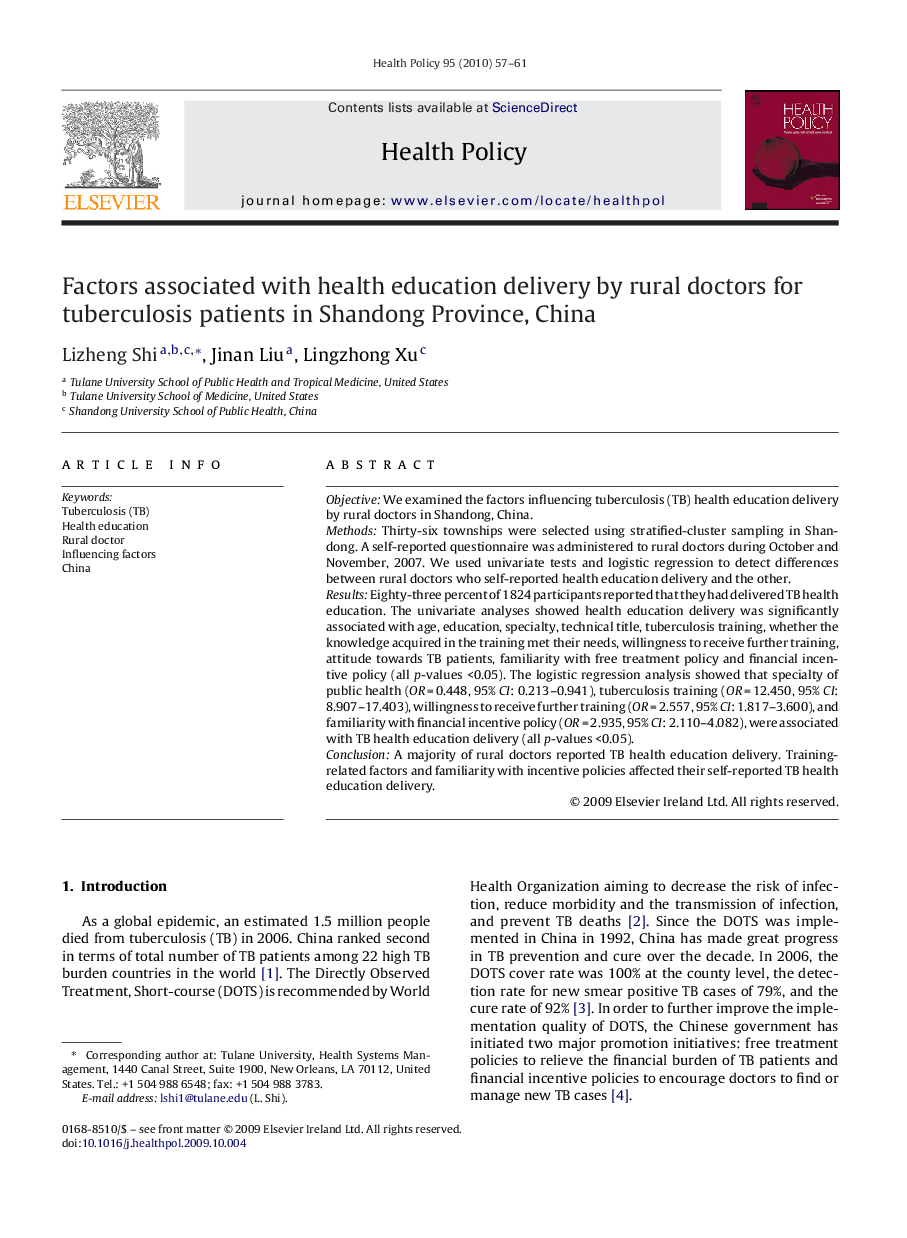| Article ID | Journal | Published Year | Pages | File Type |
|---|---|---|---|---|
| 4198424 | Health Policy | 2010 | 5 Pages |
ObjectiveWe examined the factors influencing tuberculosis (TB) health education delivery by rural doctors in Shandong, China.MethodsThirty-six townships were selected using stratified-cluster sampling in Shandong. A self-reported questionnaire was administered to rural doctors during October and November, 2007. We used univariate tests and logistic regression to detect differences between rural doctors who self-reported health education delivery and the other.ResultsEighty-three percent of 1824 participants reported that they had delivered TB health education. The univariate analyses showed health education delivery was significantly associated with age, education, specialty, technical title, tuberculosis training, whether the knowledge acquired in the training met their needs, willingness to receive further training, attitude towards TB patients, familiarity with free treatment policy and financial incentive policy (all p-values <0.05). The logistic regression analysis showed that specialty of public health (OR = 0.448, 95% CI: 0.213–0.941), tuberculosis training (OR = 12.450, 95% CI: 8.907–17.403), willingness to receive further training (OR = 2.557, 95% CI: 1.817–3.600), and familiarity with financial incentive policy (OR = 2.935, 95% CI: 2.110–4.082), were associated with TB health education delivery (all p-values <0.05).ConclusionA majority of rural doctors reported TB health education delivery. Training-related factors and familiarity with incentive policies affected their self-reported TB health education delivery.
